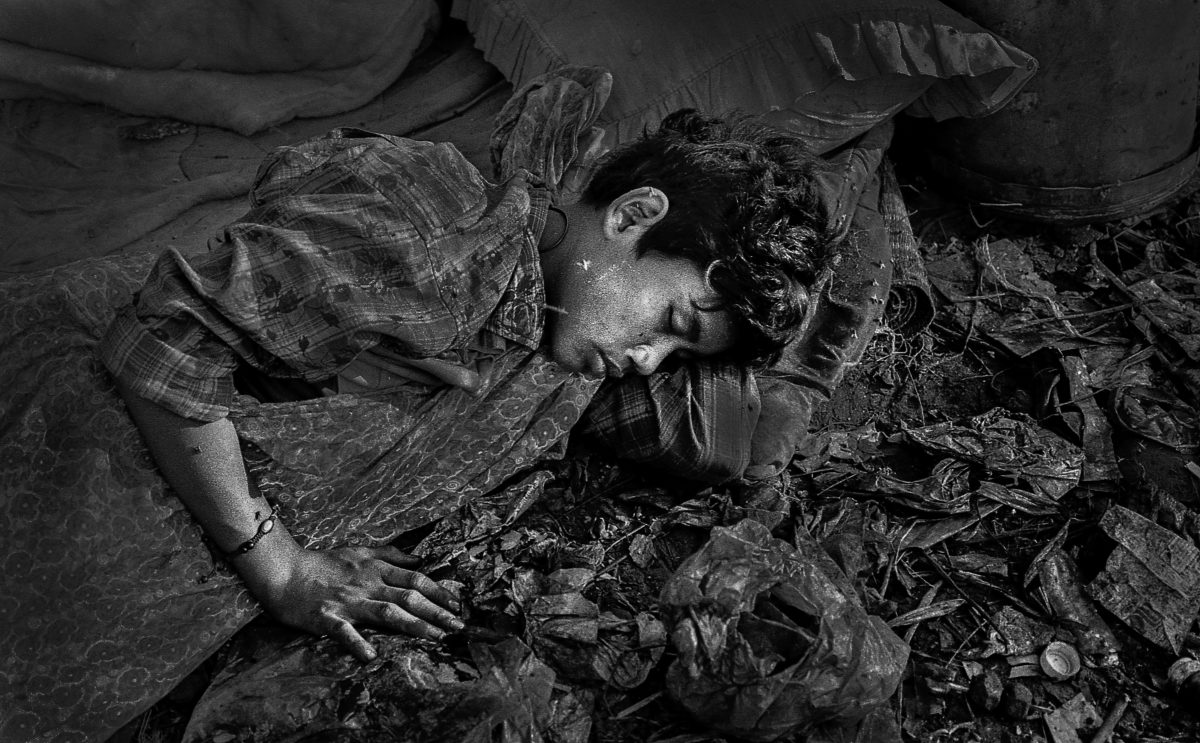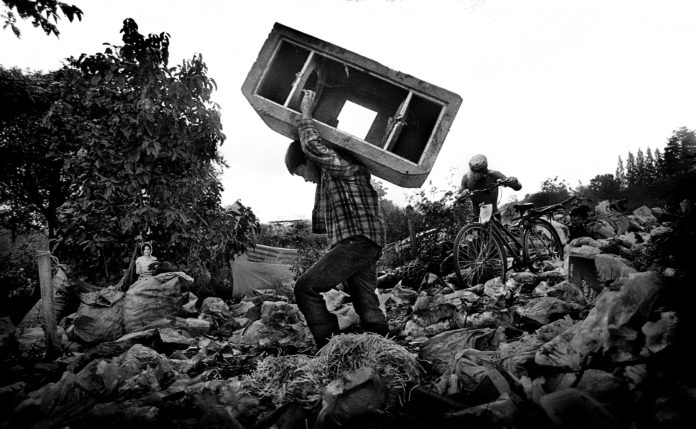Photographer Gerry Yaum got on the back of a motorcycle taxi. With as many bags of food as he could carry in his pack, he made his way to a garbage dump on the outskirts of Mae Scot, Thailand.
At the dump and off the motorcycle, he walked into the piles of trash.
Men, women and children stood on piles of discarded items, searching for anything of value. After handing out three bags of food to people he saw along the way, he spotted a young boy he wanted to photograph.
“I followed the little boy out there. He got ahead of me and it was hot. I went there around one o’clock in the afternoon. It was like 39 degrees, high humidity … as I was walking out there, the boy got farther and farther ahead.”
Originally from Edmonton, Yaum has been all over the world: Cambodia, Laos, Burma and India. He originally went to Thailand to make pictures of its nightlife, focusing on the lives of sex workers. In 2012, he heard about families working in a dump.
Yaum explained that there are about 100 families that escaped Myanmar and now live and work in the Mae Scot dump. For these families, living there is a better life than the war and persecution they faced back home.
Yaum tried to keep up with the boy he had decided to photograph, but he was blinded by sunlight reflecting off the white garbage bags.
“Walking along, I started looking at myself and I’m counting the flies that are crawling on my skin, on my hands and my feet — everywhere.”
He counted 40 flies before he stopped. He started to question what he was doing standing in the middle of a garbage dump, burning up, covered in flies.
When speaking about photography, Yaum said that he “makes” pictures.

Yaum only started shooting with a digital camera a few years ago. He learned how to work in a darkroom in his shop class when he was 14 years old. Since he was 26, he’s been fundraising in Canada to buy enough food and essentials for the people in the countries where he travels.
Gerry Yaum is not his real name. For the last 25 years, Yaum has been working as a nighttime security guard. Yaum means security guard in Thai.
He said that because the photos he makes don’t paint the Thai government in a positive light, he runs the risk of not being allowed back into the country.
“The pictures are about the people in the photographs. The reason I make them is to tell their stories. It’s not about me or to get my name on a wall.”
As Yaum swatted away flies at the dump, he noticed two people in the distance. Walking towards them, he saw that they were father and daughter. The pair were working in the garbage. He crouched down by the little girl whom he thought was about nine years old.
He took her picture.
She smiled at him, unbothered by the sun and flies landing all over her body.
“All of a sudden I realized how graceful she was, so kind, so happy. She was doing so much better than I was in the same situation. I thought, if this little child can take this with a smile and with such grace, what am I crying about?”
Yaum learned that her name was Iye Iye. Last he heard from her she was married and living in Bangkok with her two children. Yaum still draws on his memory of Iye Iye’s smile working in the dump for strength and perseverance.
Yaum’s pictures, Families of the Dump, will be coming to the UNB Arts Centre on Oct. 28. There will be a chance to hear him speak about his experiences and an opportunity to donate on his Gofundme so that Yaum can buy headlamps, boots and lollipops for the people he now considers friends in Mae Scot.
Marie Maltais, the director of the UNB Arts Centre, was struck by Yaum’s authentic and altruistic motives for his art.
“He just wants people to see these people and to understand their lives … he’s showing us their faces. He’s showing us their lives. He’s showing us that these are people deserving our attention and our concern and our care.”

